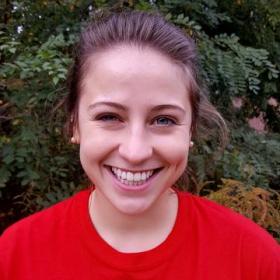Just Another Day at Birmingham
At my host site, the Birmingham Free Clinic, the staff members and I often find ourselves saying, “Just another day at Birmingham.” Serving at Birmingham has normalized the creative and out-of-the-box thinking that healthcare delivery frequently requires. About 30% of our patients at Birmingham report that they prefer to speak in a language other than English. 26% of our patients identify as Hispanic or Latino which we are able to serve by employing a part-time certified translator or using student volunteers from the University of PIttsburgh School of Medicine’s student group called SALUD (Students and Latinos United Against Disparity). When Birmingham comes across patients in the remaining 4%, we work to refer these patients to another health center that has language translation services such as certified translators in a variety of languages or the “Blue” interpretation phone system. When these options are not possible for a patient, we are forced to adapt in order to make sure patients do not go without care. Whether this is a family member translating for the patient, a student volunteer speaking a closely related language to the one spoken by the patient, or a provider speaking a confluence of two languages, we tend to find interesting solutions to our linguistic challenges.
I’ve found that creative thinking extends to all aspects of service at Birmingham, especially advocacy in the context of medication assistance. One of the most fundamental aspects of serving at Birmingham is facilitating prescription medication assistance program (PMAP) applications. Several drug companies offer PMAPs that allow low-income individuals to receive medication at no cost. Often times these drug companies will require proof of income or a social security number for a soft credit check. These pieces of information can be challenging to obtain from patients whose income is untaxed or who haven’t become naturalized citizens. These constraints require us to be creative by submitting applications with Medicaid denial letters instead of social security numbers or letters explaining untaxed income. These attempts at approving patients for PMAPs aren’t always successful but I believe there is value in learning how drug companies react to the realities of patient lives and how compassion is not always a prevailing quality in healthcare. I feel that throughout my professional career as a physician I will come across days that demand the same creative thinking that Birmingham has. I look forward to gaining more experience with problem-solving during my year of service so that when a ‘Just Another Day at Birmingham’ kind of day comes along I will be prepared to handle it.

(Photo of Birmingham Free Clinic)

This post was written by NPHC member Lauren Gochenaur.
Lauren serves at Birmingham Free Clinic as a Patient Navigator.